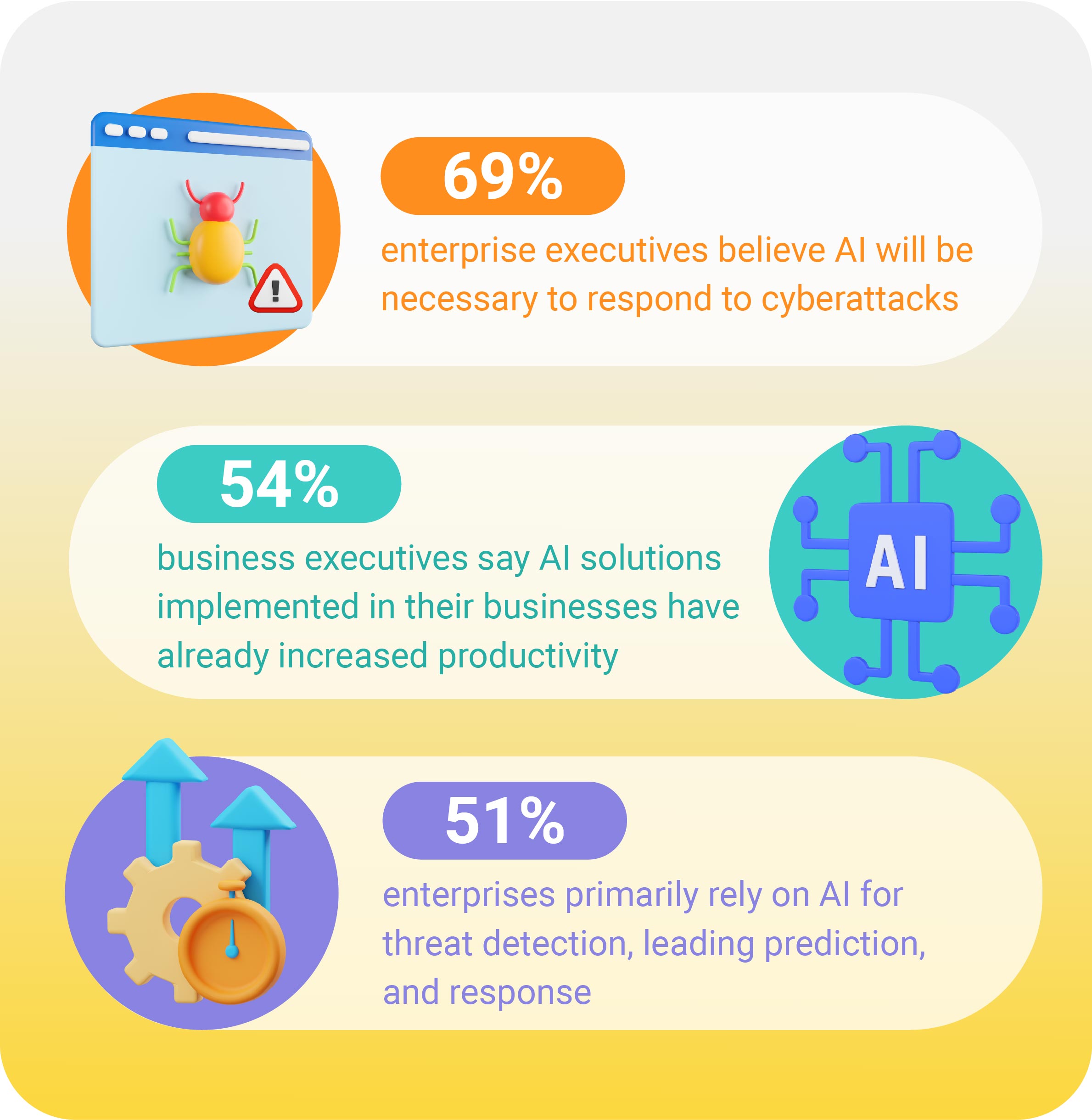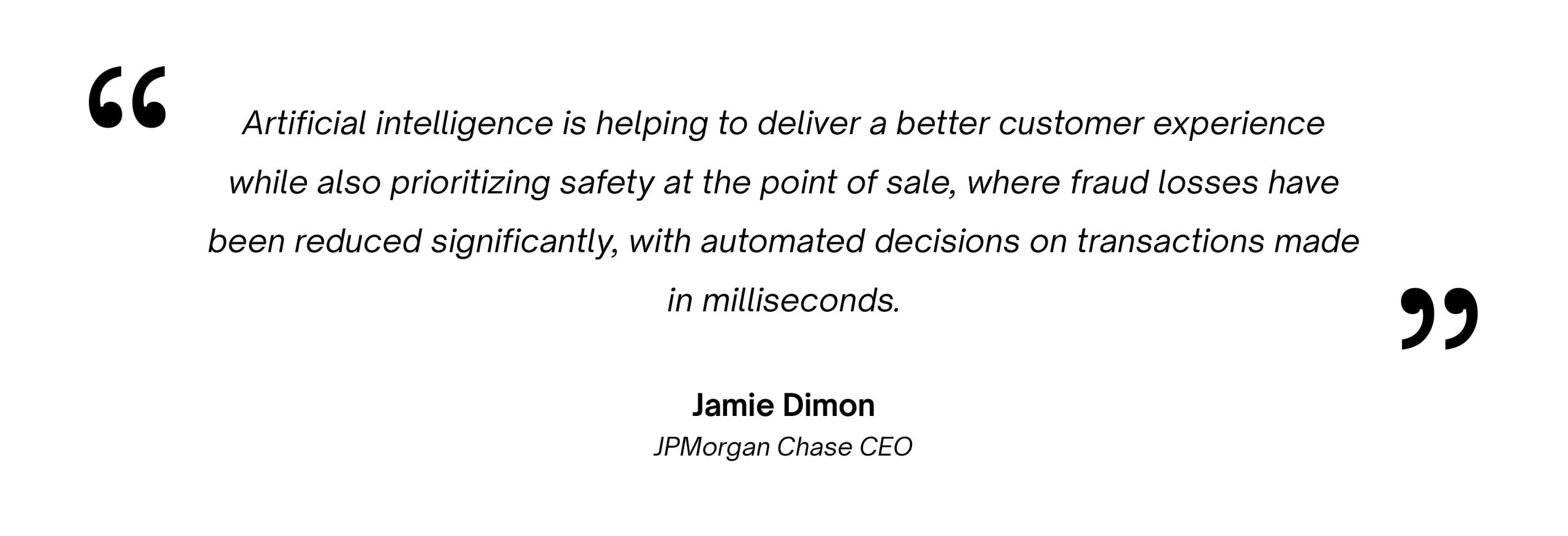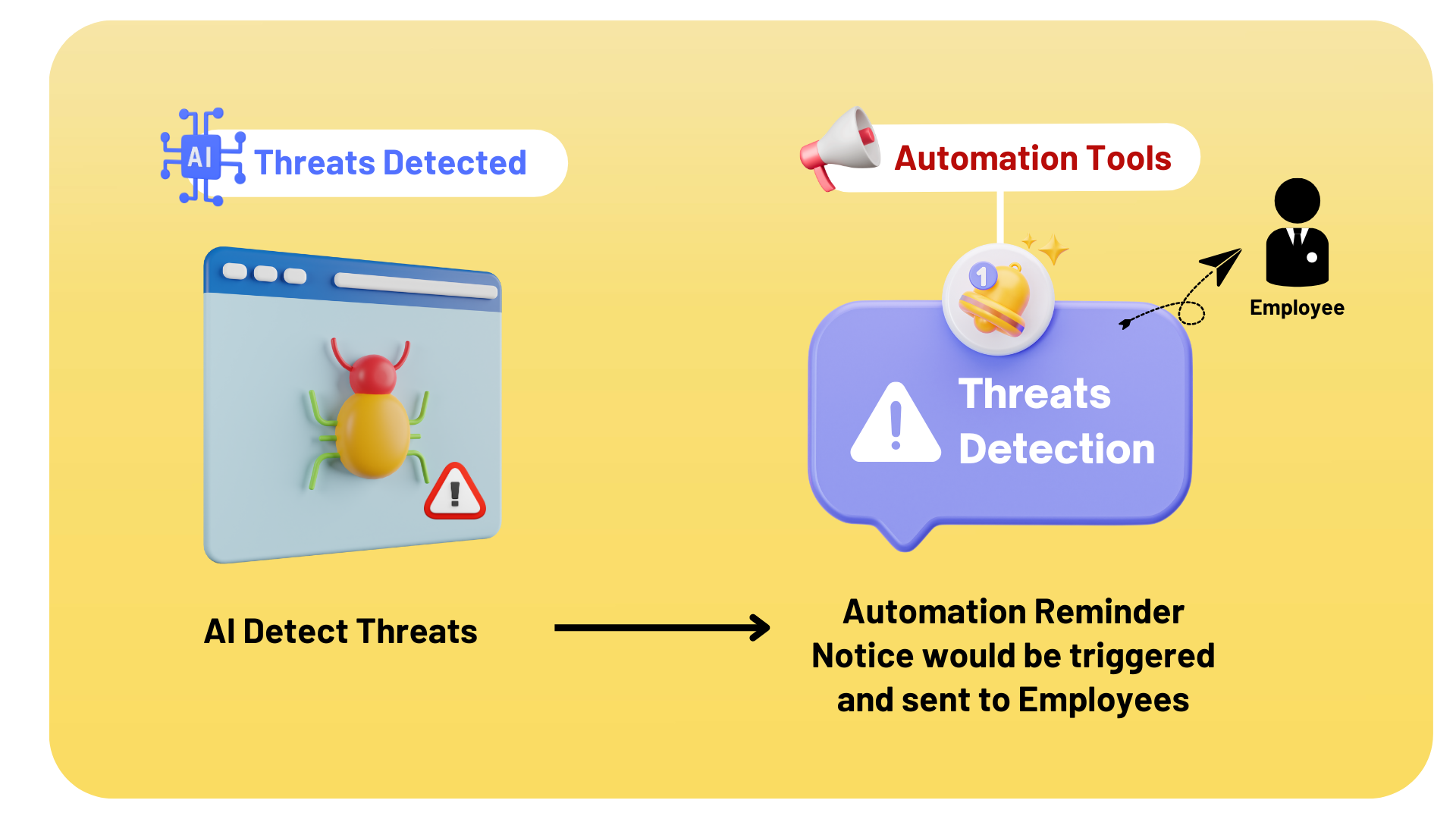Market Insight
Leveraging AI for Enhancing Cybersecurity in the Bank Industry
Introduction
As the bank industry continues to rely on digital technologies, cybersecurity has become a top priority to protect against increasingly sophisticated cyber threats. AI can analyse large data volumes to detect potential threats and anomalies in network traffic, as well as responding to security incidents. According to Gartner, 51% of enterprises rely on AI for threat detection, leading prediction and response, this indicates that it will undoubtedly play a crucial and essential role in protecting businesses’ cybersecurity.

How One of the Well-Known Banks Uses AI to Enhance their Cybersecurity:
Many banks are already leveraging AI strategies for improved cybersecurity. For instance, JPMorgan Chase researchers developed an early warning system using AI techniques to detect malware and phishing campaigns. The system uses anomaly detection to compare the difference between normal user behaviour and abnormal activity, after identifying potential threats it will then provide ample warning for internal employees before any actual attack takes place. The system identifies mass phishing campaigns created through domain generation algorithms and malicious URLs by comparing them with known suspicious traffic patterns, jumbled URLs and spelling mistakes characteristic of phishing campaigns, so employees can take immediate action to prevent.

How AI and Automated Tools Facilitate a Better Communication and Engagement:
While JPMorgan Chase’s strategy is undoubtedly a wise approach and a notable example for other businesses to follow, it is worth noting that companies can still achieve similar benefits by implementing automated tools to benefit both internal employees and external customers. Internally, when it detects or predicts any potential threats, automation tools would trigger a notification to alert core team members about what went wrong, this minimizes any unnecessary communications or arguments between departments, which allows them to address the issues immediately without extra time for meeting to discuss as automation tools have already done most of the tedious works.
Furthermore, a real-time alert journey can be triggered to external customers when AI systems detect any unusual transaction, this enables customers to contact the bank promptly and ask them to follow up any issues. This not only helps preventing customers from experiencing losses but also fosters better engagements and relationships between the bank and its customers, this ultimately leads to increased loyalty and retention, as well as a more positive reputation for the bank.
Furthermore, a real-time alert journey can be triggered to external customers when AI systems detect any unusual transaction, this enables customers to contact the bank promptly and ask them to follow up any issues. This not only helps preventing customers from experiencing losses but also fosters better engagements and relationships between the bank and its customers, this ultimately leads to increased loyalty and retention, as well as a more positive reputation for the bank.

Challenges and Potentials:
To fully leverage the benefits outlined above, it is crucial to implement a rigorous process for data entry, cleansing, and validation to ensure high-quality data. Utilizing outdated data can result in inaccurate predictions and decisions, hindering the effectiveness of AI and automation. However, automated tools have the potential to overcome this challenge and fulfil all the automated task to improve accuracy and reduce errors. They can also detect patterns and anomalies in data, verifying accuracy against external sources. This improves the overall quality of operations and enables informed decisions based on reliable and accurate data.
Do you have any interesting ideas in your mind? Put your information below and share with us!
Do you have any interesting ideas in your mind? Put your information below and share with us!
Contact US
Features Articles
Get ready to find a professional email marketing company in Hong kong?
Radica as #1 All-In-One Email Marketing Automation Platform can ease your concern.






